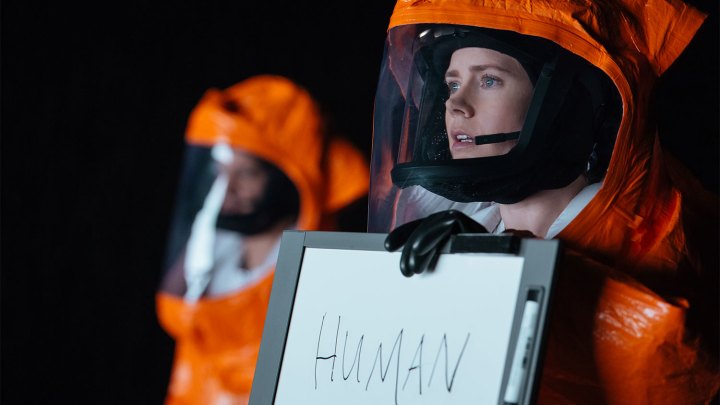
Paramount Pictures announced plans to screen Arrival in theaters again, beginning Friday, January 27. The new screenings will feature some additional footage and behind-the-scenes features only available at the screenings (which will likely be available as bonus features on some of the home-entertainment releases for the film later this year). It’s unknown how long the rerelease will last, but the duration of its second run in theaters will likely be determined by box-office numbers.
Directed by Villeneuve, Arrival casts Amy Adams as a linguist tasked with establishing communication with mysterious aliens who have arrived on Earth. With the aliens touching down at locations all around the world, Adams’ character is in a race against time to find out why they are here and avert the sort of global catastrophe that can result from a misunderstanding with extraterrestrial visitors.
The film is based on Ted Chiang’s novel Story of Your Life, and was adapted for the screen by Eric Heisserer.
Along with Adams in the lead role, the film features Jeremy Renner, Forest Whitaker, Michael Stuhlbarg, and Mark O’Brien in supporting roles. The film earned $95.6 million in U.S. theaters during its initial run and $163.1 million worldwide.
Arrival was nominated in the coveted Best Picture category for this year’s Academy Awards, and also received nominations for Villeneuve in the Best Director category, Heisserer in the Best Adapted Screenplay category, and additional nominations for cinematography, film editing, production design, sound mixing, and sound editing.
Widely perceived as a long-shot to win any of the major awards at this year’s Oscars ceremony, Arrival still tied with the critically praised drama Moonlight for the second-highest number of nominations this year — a year that also saw Damien Chazelle’s modern musical La La Land tie for the most nominations in Academy Awards history — 14.
Editors' Recommendations
- 10 best 2010s sci-fi movies, ranked
- Like Christopher Nolan’s sci-fi classic Inception? Then watch these great movies now
- 5 great sci-fi movies that will put you to sleep (in a good way)
- This 2016 sci-fi film is one of Netflix’s most popular movies now. Here’s why you should watch it
- 8 best sci-fi video games to play if you liked Apple TV+’s hit show Silo



